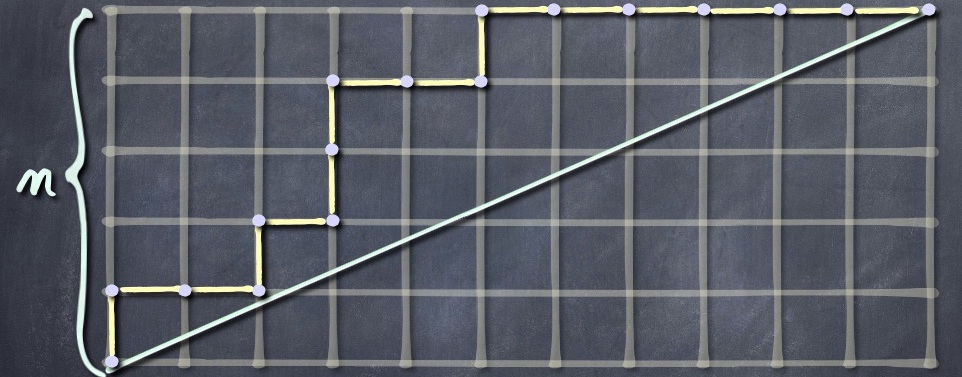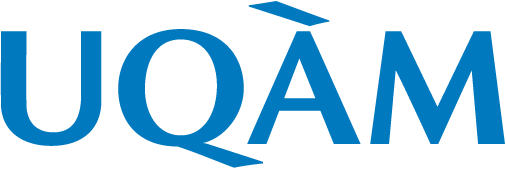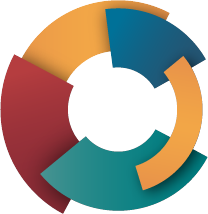Regular members
-
Ibrahim Assem, Université de Sherbrooke
Research areas: representation theory of algebras, cluster algebras, homological algebra, category theory, rings and modules. -
Véronique Bazier-Matte, Université Laval
Research areas: cluster algebras, representation theory of algebras, knot theory, triangulation of marked surfaces. -
Anne Bergeron, UQAM (Informatique)
-
François Bergeron, UQAM (Mathématiques)
François Bergeron's research involves the study of interesting interactions between algebraic structures (spaces of diagonal harmonic polynomials, representations of reflection groups, etc.) and combinatorial objects (trees, integer partitions, permutations, Catalan structures, parking functions, etc.). -
Alexandre Blondin-Massé, UQAM (Informatique) / Hydro Québec
-
Srečko Brlek, UQAM (Informatique)
-
Thomas Brüstle, Université de Sherbrooke
Research interests: Homological algebra, representation theory, topological data analysis, exact categories and structures. -
Samuele Giraudo, UQAM (Informatique)
Samuele Giraudo's research is centered at the intersection of combinatorics, algebra, and theoretical computer science. The primary goal of his research is to develop novel methods for counting and enumerating a wide range of combinatorial objects, including trees, permutations, words, and heaps of pieces. -
Alain Goupil, UQTR
Research areas: Combinatorics, algebra, symmetric groups, enumeration -
Sylvie Hamel, Université de Montréal
Research areas: Bioinformatics, languages and automata theory, combinatorics on words, Macdonald polynomials and symmetric functions -
Christophe Hohlweg, UQAM (Mathématiques)
Christophe Hohlweg's primary area of research is combinatorial group theory, and his favorite themes are Coxeter groups, reflections groups and their related structures. His research program sits at the interface of algebraic and geometric combinatorics. -
Joel Kamnitzer, McGill University
Joel Kamnitzer's research concerns complex reductive groups and their representations, with a particular interest in geometric and algebraic approaches to this study, especially the geometric Satake correspondence. -
Ryan Kavanagh, UQAM (Informatique)
Ryan Kavanagh aims to develop tools and techniques that help practitioners correctly specify, implement, and reason about concurrent and communicating systems. His current work involves designing and reasoning about the logical foundations of programming languages for concurrency. -
Jean-Philippe Labbé, ETS Montréal
Jean-Philippe Labbé's research is at the intersection of combinatorics, discrete geometry and group theory. His research merges abstract modelizations and computational experimentations to tackle open problems related to Coxeter groups, polytopes (in particular permutahedra, associahedra, and their applications to quantum physics), triangulations, and simplicial complexes. -
Gilbert Labelle, UQAM (Mathématiques)
Research interests: theory of complex polynomials, special functions, numerical analysis, theory of combinatorial species (computational methods, asymmetric structures, combinatorial models for Lagrange inversion, iterative schemes, $q$-analogues, various classes of tree structures, etc.), asymptotic analysis, applications of symbolic computation. -
Benoît Larose, Collège Champlain à St-Lambert / UQAM
Benoît Larose is interested in the algorithmic complexity of constraint satisfaction problems, graph homomorphisms, applications of algebra and algebraic topology to these domains, as well as universal algebra and extremal combinatorics. -
Jake Levinson, Université de Montréal
Jake Levinson is primarily interested in algebraic geometry and algebraic combinatorics. His current research involves moduli of stable curves, Schubert calculus, toric varieties and equivariant free resolutions. -
Shiping Liu, Université de Sherbrooke
-
Vladimir Makarenkov, UQAM (Informatique)
Vladimir Makarenkov's research focuses mainly on bioinformatics, data analysis, and machine learning. -
Alejandro H. Morales, UQAM (Mathématiques)
Research areas: Alejandro H. Morales' research is on Enumerative and Algebraic Combinatorics. He studies the enumeration and asymptotics of standard tableaux of skew shape, linear extensions of posets, and Schubert polynomials. He also studies flow polytopes of graphs and analogues of factorizations of permutations in other groups and algebras. -
Christophe Reutenauer, UQAM (Mathématiques)
Algebraic Combinatorics, finite automata, variable-length codes, free Lie algebras, non commutative algebra, free fields, descent algebras, symmetric and quasi-symmetric functions, combinatorics on words, Sturmian sequences, Christoffel words, non commutative rational series, Hilbert schemes, Markoff numbers -
Vladimir Reinharz, UQAM (Informatique)
Vladimir Reinharz's research focuses on Computational Biology and Evolution, particularly the design of new algorithms to study RNA molecules and viral infections. -
Franco Saliola, UQAM (Mathématiques)
Franco Saliola's area of research is algebraic combinatorics. His research program developed from explorations into algebraic structures arising from random walks on the chambers of hyperplane arrangements; and has naturally expanded to include the representation theory of symmetric groups and general linear groups. -
Hugh Thomas, UQAM (Mathématiques)
Hugh Thomas's research aims to understand better the combinatorial structures present in the theory of representations of finite dimensional algebras. He also studies links between representation theory and scattering amplitudes in quantum field theory. -
Alex Weekes, Université de Sherbrooke
Alex Weekes's research focuses on representation theory, algebra, algebraic geometry, and mathematical physics, with a particular interest in the theory of Coulomb branches.
Postdoctoral Fellows
-
Jose Bastidas, PhD (Cornell University, 2021)
Dr. Bastidas's research interests lie in algebraic combinatorics with a particular focus on the interplay between Hopf monoids in the category of Species and hyperplane arrangements. -
Jonathan Boretsky, PhD (Harvard University, 2024)
Dr. Boretsky's research interests lie in the intersection of algebraic combinatorics and algebraic geometry, with a special focus on positivity. -
Monica Garcia, PhD (Paris-Saclay, 2024)
Dr. Garcia's research interests lie in the intersection of representations of finite dimensional algebras, combinatorics and cluster algebras. -
Théo Pinet, PhD (Université Paris-Cité et Université de Montréal, 2024)
Dr. Pinet's research interests include: representation theory, geometry, (afffine) quantum groups, cluster algebras, diagrammatic algebras, mathematical physics. -
Luis Scoccola, PhD (University of Western Ontario, 2020)
Dr. Scoccola's research lies at the intersection of mathematics and computer science: computational topology & geometry, representation theory, and machine learning. -
Tianyi Yu, PhD (University of California, San Diego, 2024)
Dr. Yu's research specializes in algebraic combinatorics.
Graduate Students
(Refer also to the list of graduate students in the mathematics department. )
-
Antoine Abram, étudiant au doctorat à UQAM
Direction de recherche: Christophe Reutenauer -
Nicolas Avila, étudiant au doctorat à UQAM
Direction de recherche: Alejandro Morales -
Julien Dalpayrat-Glutron, étudiant au doctorat à UQAM
Direction de recherche: Hugh Thomas -
Karimatou Djenabou, étudiante au doctorat à UQAM
Direction de recherche: François Bergeron et Franco Saliola -
Yakob Kahane, étudiant au doctorat à UQAM
Direction de recherche: Alejandro Morales -
Antoine Labelle, étudiant à la maitrise à McGill
Direction de recherche: Joel Kamnitzer -
Yan Lanciault, étudiant à la maîtrise à UQAM
Direction de recherche: François Bergeron -
Wahib Lassouani, étudiant au doctorat à UQAM
Direction de recherche: Franco Saliola -
Damien Leblanc, étudiant à la maitrise à McGill
Direction de recherche: Joel Kamnitzer -
Alexis Leroux-Lapierre, étudiant au doctorat à McGill
Direction de recherche: Joel Kamnitzer -
Sonia Oueslati, étudiante à la maitrise à UQAM
Direction de recherche: Christophe Reutenauer -
Philippe Petit, étudiant au doctorat à UQAM
Direction de recherche: Hugh Thomas -
Philip Pinard McManiman, étudiant au doctorat à UQAM
Direction de recherche: Franco Saliola -
David Emmanuel Pazmino Pullas, étudiant au doctorat à UQAM
Direction de recherche: Benoit Larose et François Bergeron -
Catalina Quincosis, étudiante à la maitrise à UQAM
Direction de recherche: Jean-Philippe Labbé -
Adrien Segovia, étudiant au doctorat à UQAM
Direction de recherche: Samuele Giraudo et Hugh Thomas -
Sarah Sekheri, étudiante à la maitrise à UQAM
Direction de recherche: Christophe Reutenauer et Franco Saliola -
Sooa Song, étudiante au doctorat à UQAM
Direction de recherche: Alejandro Morales -
Etienne Tétreault, étudiant au doctorat à UQAM
Direction de recherche: François Bergeron
Research Collaborators
-
Marcelo Aguiar
Cornell University -
Luc Bélair
UQAM (Mathématiques) -
Nantel Bergeron
York University -
Juan Carlos Bustamanate
Université de Sherbrooke -
Camille Coti
ETS Montréal -
Abdoulaye Banire Diallo
UQAM (Informatique) -
Gabriel Frieden
McGill Desautels -
Adriano Garsia
Université de Californie à San Diego -
Mathieu Guay-Paquet
LACIM -
Mark Haiman
Université de Californie à Berkeley -
Nadia Lafrenière
Concordia -
Luc Lapointe
Université de Talca (Chili) -
Claudia Malvenuto
Université La Sapienza -
Janosch Ortmann
UQAM (AOTI) -
Yann Palu
Université d'Amiens -
Vincent Pilaud
Universitat de Barcelona -
Pierre-Guy Plamondon
Université de Versailles -
Simon Plouffe
IUT Nantes -
Viviane Pons
Université d'Orsay -
Timothy Walsh
UQAM (Informatique) -
Nathan Williams
UT Dallas



